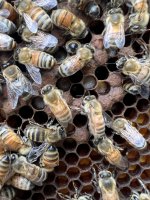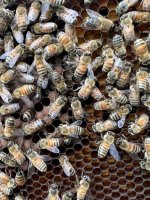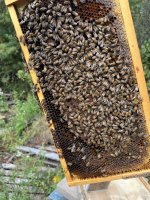On a serious note, the loss of insects is alarming. I remember as a kid looking out across the pastures and it was like a light show from the fireflies. Now, one here and there. I read that the firefly loss is loagely doe to light pollution. Same with honey bees, they're dyeing off.
9 hours ago — From flickering fireflies to lowly dung beetles, insects are vanishing · A WORLD OF DANGERS. The demise of insects can't be attributed to any ...
From flickering fireflies to lowly dung beetles, insects ... - Reuters
https://www.reuters.com › business › environment › flicke...9 hours ago — From flickering fireflies to lowly dung beetles, insects are vanishing · A WORLD OF DANGERS. The demise of insects can't be attributed to any ...




